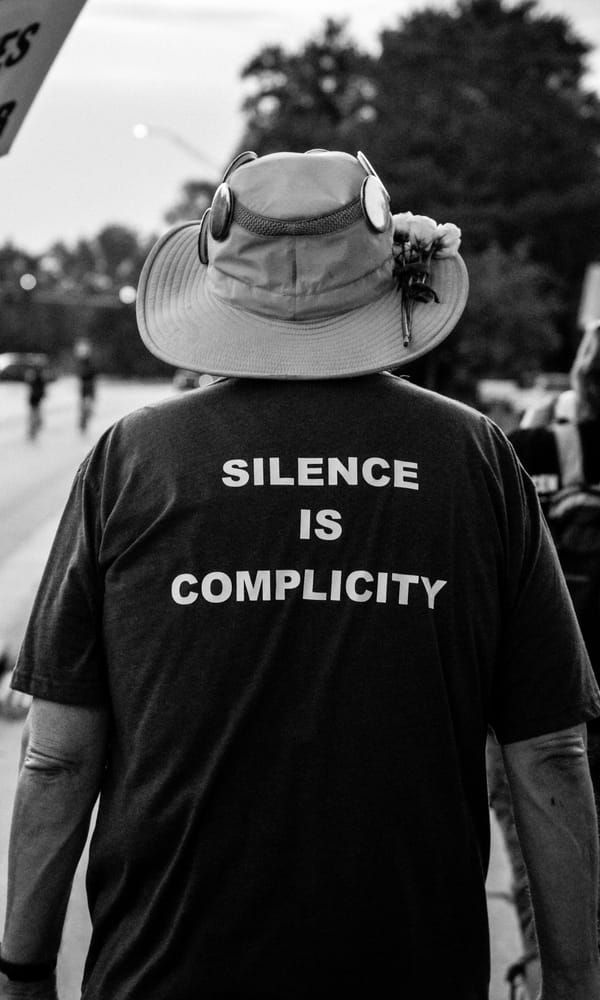Breaking Down Communication Barriers in Christian Marriages: A Guide to Healing and Connection

Communication is often touted as the lifeblood of a healthy marriage, and this is especially true within Christian unions, where the commitment to honor God and each other is foundational. Yet, despite the best intentions, many Christian couples find themselves grappling with communication barriers that seem insurmountable. These barriers, often subtle and slowly creeping, can erode the connection between partners, creating emotional distance that feels almost impossible to bridge.
In a Christian marriage, communication is not just about exchanging words but about expressing love, forgiveness, and understanding that reflect Christ's love for the Church. The essence of biblical communication goes beyond the surface; it delves into the heart, requiring vulnerability, patience, and, most importantly, a willingness to listen—not just to each other, but to God. This article seeks to explore the root causes of these communication barriers and provide a biblical pathway to healing and reconnection.
The Root Causes of Communication Barriers
Understanding why communication barriers form is the first step toward dismantling them. These barriers often stem from deeper issues that affect not only how we speak but also how we listen, respond, and even interpret our partner's words. A closer look reveals several root causes:
- Spiritual Disconnect: One of the most profound, yet often overlooked, sources of communication problems is a spiritual disconnect between partners. When couples drift away from God, it often reflects in how they relate to each other. Without the guiding light of prayer, Scripture, and shared worship, the heart can grow cold, and the ability to communicate openly becomes clouded by pride, selfishness, or fear. Spiritual disconnection doesn’t just hinder communication—it dismantles the very foundation upon which Christian marriage is built.
- Cultural and Family Backgrounds: Our upbringing and cultural context shape how we communicate. Some couples enter marriage with vastly different communication styles rooted in their family backgrounds. One partner may be accustomed to direct and forthright dialogue, while the other has been raised in a more reserved, conflict-avoidant environment. These differences, though not insurmountable, can create misunderstandings that feel like insurmountable chasms.
- Unmet Expectations: Christian marriages often carry a unique set of expectations shaped by religious beliefs, community standards, and personal dreams. When these expectations go unmet, whether spoken or unspoken, they can lead to disappointment and resentment. This barrier isn’t always about what’s said but about what’s left unsaid—the silent longings and unfulfilled promises that drive a wedge between partners.
- Fear of Vulnerability: The fear of being vulnerable, of exposing our deepest thoughts and fears to our spouse, can be a significant barrier to healthy communication. In a Christian marriage, this fear often collides with the biblical call to be “naked and unashamed” before one another (Genesis 2:25). Vulnerability requires trust, and trust is built through consistent, open communication—a cycle that is difficult to maintain when fear takes hold.
Identifying the Most Common Barriers
While the root causes provide a backdrop, it's crucial to identify the specific barriers that manifest in everyday interactions. Recognizing these barriers can help couples address them with intentionality and grace.
- Criticism and Contempt: Criticism often masquerades as helpful advice or constructive feedback, but in reality, it strikes at the core of one’s self-worth. Coupled with contempt—expressed through sarcasm, eye-rolling, or disdainful comments—this communication pattern can be devastating. The Bible warns against this, urging believers to speak words that build up rather than tear down (Ephesians 4:29). For many Christian couples, these negative patterns stem from deeper insecurities or unresolved conflicts that need careful, prayerful attention.
- Avoidance and Withdrawal: The silent treatment, avoidance of difficult conversations, and emotional withdrawal are common barriers that leave issues unresolved and partners feeling disconnected. In Christian marriages, this behavior is often rooted in a desire to keep peace or avoid hurting each other. However, avoiding communication doesn’t protect the relationship—it slowly erodes the intimacy that God designed for marriage. As Proverbs 15:1 reminds us, “A gentle answer turns away wrath, but a harsh word stirs up anger.” Silence, while seemingly gentle, can also be harsh in its own way.
- Technology and Distractions: In our digitally saturated world, the constant buzz of notifications, emails, and social media can drown out the voice of our spouse. Technology, though a powerful tool for connection, often becomes a source of distraction that keeps us from engaging fully with our partners. The Bible doesn’t speak directly to smartphones or screens, but it does warn about the dangers of anything that pulls our attention away from what truly matters (Matthew 6:21). Setting boundaries around technology use can help reclaim the space needed for meaningful, God-centered conversations.
Biblical Strategies for Overcoming Communication Barriers
The Bible offers profound wisdom on how to navigate communication barriers in marriage. Applying these scriptural principles can transform how couples relate to one another, fostering a healthier, more connected relationship.
- Scripture-Based Communication Principles: Biblical communication emphasizes kindness, patience, and a commitment to truth. James 1:19 advises, “Everyone should be quick to listen, slow to speak and slow to become angry.” For Christian couples, this verse isn’t just advice—it’s a directive on how to engage with one another in love. Practicing these principles in daily interactions can soften hearts and open channels of communication that were once closed.
- Praying Together as a Couple: Prayer is one of the most powerful tools in overcoming communication barriers. When couples pray together, they invite God into their conversations, allowing His wisdom and peace to guide their words. Prayer aligns the hearts of both partners, making it easier to speak honestly and listen with compassion. It’s not just about asking for solutions—it’s about seeking God’s presence in the midst of the struggle.
- Seeking Christian Counseling or Mentorship: Sometimes, the barriers are too entrenched to overcome alone. Seeking guidance from a Christian counselor or mentor can provide the support and perspective needed to break through communication challenges. A third party can offer biblical insights, practical tools, and an objective voice that helps couples see their situation from a new angle. Counseling isn’t a sign of failure—it’s an acknowledgment of the need for Godly wisdom in navigating complex marital dynamics.
Practical Action Plan for Couples
To move from awareness to action, couples can implement practical steps that encourage open and healthy communication:
- Weekly Check-Ins: Setting aside time each week to check in with each other can help keep communication lines open. These conversations don’t have to be formal; they’re simply a time to share, listen, and reconnect. Questions like, “How have you felt loved this week?” or “Is there anything we need to work through together?” can spark meaningful dialogue.
- Creating Safe Spaces for Vulnerability: Building a safe space means committing to listening without judgment, responding with empathy, and offering grace in moments of weakness. This approach aligns with the biblical call to bear one another’s burdens (Galatians 6:2), creating an environment where both partners feel secure in expressing themselves.
- Forgiveness and Moving Forward: No matter how deep the communication barrier, forgiveness remains a cornerstone of Christian marriage. Holding onto grudges or past hurts only strengthens the walls that divide. As Colossians 3:13 urges, “Forgive as the Lord forgave you.” Couples can work towards forgiveness by acknowledging past wounds, apologizing sincerely, and choosing to move forward in love.
Christian marriage is a beautiful, complex journey that requires ongoing effort, patience, and, above all, communication. By identifying the barriers that hinder open dialogue and applying biblical principles to overcome them, couples can experience deeper connection and renewed intimacy. It’s a path that calls for humility, vulnerability, and a commitment to keep God at the center of every conversation. As we strive to break down these barriers, we are reminded that our words are not just ours—they are a reflection of the love Christ has for us and the commitment we have made to each other. Let us speak with grace, listen with patience, and love without condition, trusting that God’s wisdom will guide us every step of the way.




